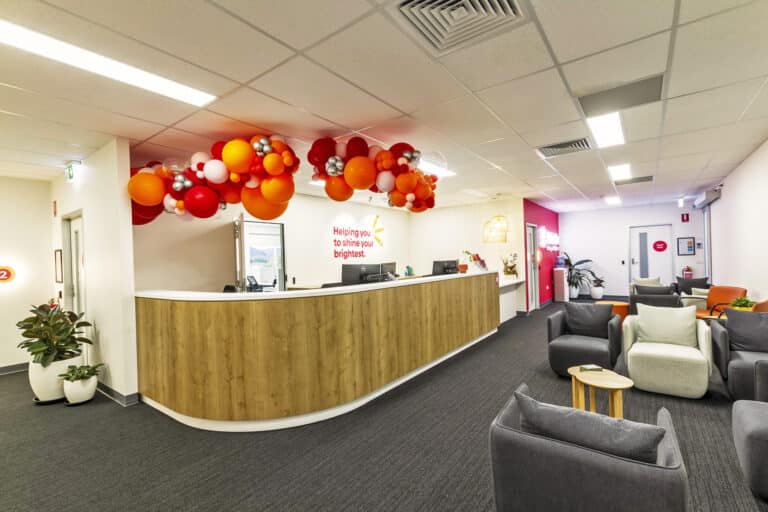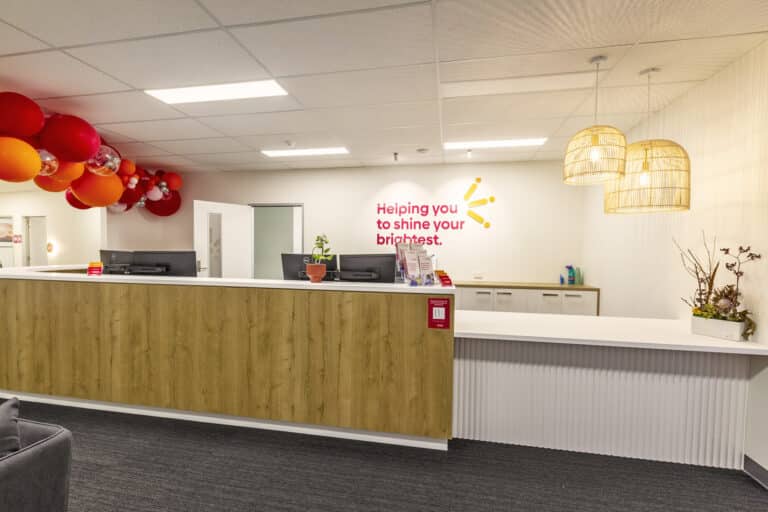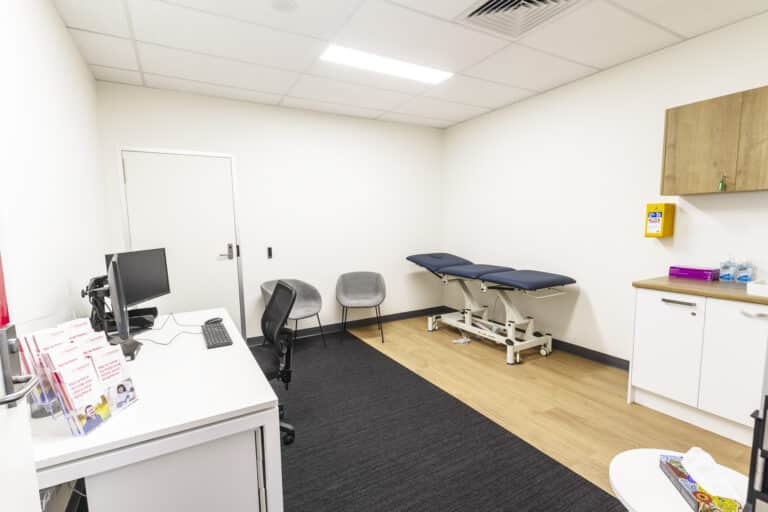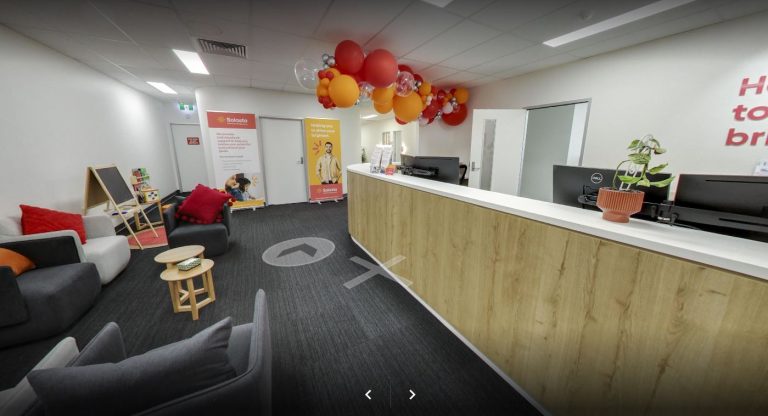Sometimes you need extra help to navigate life’s curveballs or take steps towards personal growth.
Whether you’re facing personal challenges, relationship difficulties, navigating a life transition or managing concerns related to your mental health or disability, counselling can be very beneficial.
It can help you to develop a deeper understanding of your situation, learn healthy coping strategies or build skills to help you achieve your goals.
How to know when it’s time to get support
Some of the signs you may be experiencing that indicate it’s time to get support include:
- Struggling to adapt to the impact of your mental health or disability
- Difficulty regulating emotions
- Changes to your mood
- Feeling overwhelmed with anxiety or worry
- Difficulty concentrating or making decisions
- Changes in appetite or sleep patterns
- Loss of interest in activities you once enjoyed
- Struggling to cope with stress or life transitions
- Conflicts in your relationships
Through evidence-based practices, our team of compassionate and experienced counsellors provide a safe and non-judgmental space for you to talk through your concerns and develop skills to help you to shine your brightest.
We provide individual counselling services at Klemzig and at our Sonder centres in Port Adelaide and Edinburgh North.
Counselling can help to:
- Develop healthy coping strategies
- Manage difficult situations
- Develop anger management skills
- Build self-esteem and confidence
- Promote self compassion
- Develop stress management skills
- Improve daily living
- Process grief and loss
- Develop effective communication and social skills
- Navigate life changes or challenging circumstances
- Develop self-awareness and self-regulation
- Develop resilience and confidence
- Promote flexible thinking and problem-solving
- Reduce anxiety and depression
- Improve relationships
If you are registered with the NDIS and have a plan that includes funds for the support category ‘Improved Daily Living Skills’, your counselling services may be funded by the NDIS.
Our team can provide counselling services to both self and plan-managed NDIS participants.
We’ll work with you, and the people in your chosen support network to help you identify goals and work towards achieving them.
Find out moreOur approach
At Solasta, we understand the importance of a strong connection between you and your clinician where you feel understood.
For this reason, our team take care to link you with a clinician who is best suited to your needs and preferences and who you will connect with.
Our clinicians are committed to a person-led approach, ensuring that you are at the centre of all our services. To achieve this, your clinician will focus on your strengths and work with you to build the skills you need to achieve your goals.
During your time at Solasta, you will always feel safe, listened to, respected and supported.
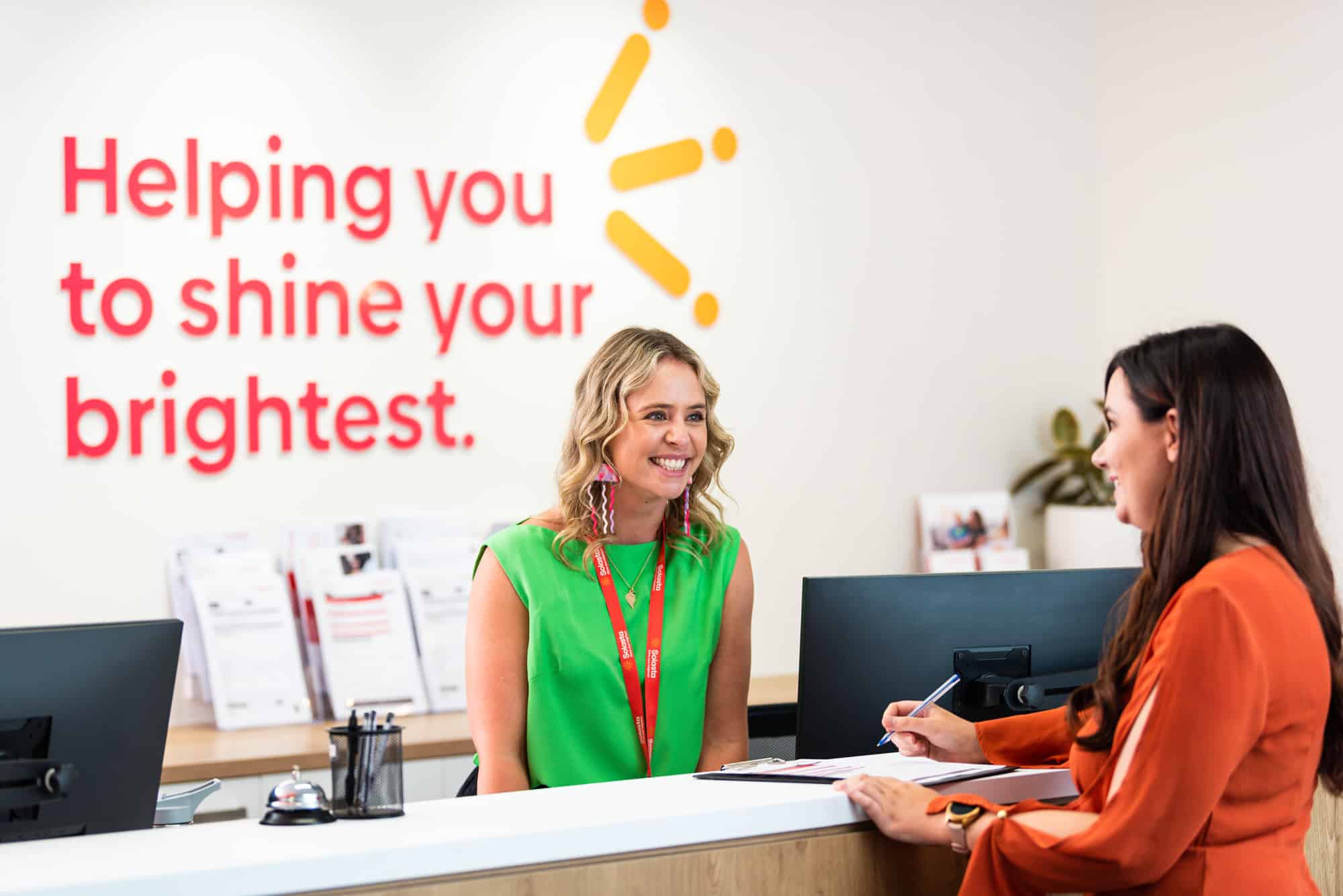
Ready to get started?
Simply fill-out our appointment request form and we’ll be in touch.
If you have any questions, we encourage you to contact the team on (08) 7160 1900 or info@solasta.net.au
Frequently asked questions
Do I need a referral?
No, you do not need a referral to see a counsellor. You can request an appointment without a referral. However, if you would like to use NDIS funding, you will need to have funding in the support category ‘Improved Daily Living’ and we will ask to see a copy of your NDIS goals to ensure that counselling services are aligned with your goals
What is the difference between counselling and psychological therapy?
Both counselling and psychological therapy aim to support individuals in addressing emotional and psychological concerns, however, they may differ in their focus, duration, and therapeutic approach.
Counselling is generally short-term and focused on specific issues or concerns, such as relationship problems, grief, stress management, or life transitions. During therapy sessions, counsellors will help people by unpacking and discussing a range of feelings and concerns like relationship issues, stress, worry, trauma, sadness, anger and more. They can also assist you in developing social skills, coping strategies, organisational abilities and other life skills. Counsellors are able to deliver ‘practical life answers’ by clarifying the issues, exploring alternatives, developing strategies, and enhancing self-awareness.
On the other hand, psychological therapy is a more focused treatment approach to reduce symptoms of mental health concerns that are more serious in nature. A psychologist’s role involves diagnosing mental health conditions and providing various specialised treatments.
What should I expect from my first appointment?
Before your first appointment starts, you may be asked to complete a registration and consent form that covers things such as confidentiality, sharing your personal information and other important information.
The first appointment is an opportunity for you and your clinician to get to know each other and discuss the reasons you have decided to start therapy.
Your clinician will try to develop a thorough understanding of your issues or concerns and any relevant history such as your family, social relationships, work history etc.
They will also work with you to develop some goals and a plan for your therapy.
How long is an appointment?
Therapy appointments are typically 50 – 60 minutes in duration. Shorter appointments are available if required.
How many appointments will I need?
Everyone will have a different journey with counselling. The number of appointments will depend on why you are coming in and what you are hoping to get out of your sessions.
Your clinician will be able to give you a clearer idea of how many appointments may suit you once they have developed an understanding of your circumstances.
How can I pay for my appointments?
Depending on your eligibility, there are a number of funding options available to support you to access our services, including NDIS. You may also choose to pay for your counselling services privately.
Visit our Fees and Funding Options webpage for more information.
Will my NDIS plan cover counselling services, or do I need to apply separately?
If counselling support is deemed necessary to achieve your goals and improve your overall wellbeing, it can be included in your NDIS plan during the planning process. You do not need to apply separately for counselling services.
How do I know if counselling is the right option for me?
You can discuss your concerns and goals with your NDIS planner, support coordinator, or healthcare provider to determine whether counselling is the appropriate option for addressing your needs and supporting you to reach your goals.
Will my services be confidential?
Any information that you disclose is confidential and will not be shared with anyone else without your permission. There are two exceptions to this rule – the first is if you are at risk of harm either to yourself or someone else, and the second is in relation to court orders. Your clinician will discuss the limits of confidentiality at your first appointment.
More information about how we collect and handle your personal information can be found in our Privacy and Consent Brochure – also available in Easy English format.
What if it's urgent?
Solasta is not a crisis service, however we do understand that during difficult periods you may require a more urgent appointment to support you. We will do our best to accommodate this if possible. Please notify us when you call to make an appointment that you would like to see someone urgently. We will then do our best to book you in at an earlier time to better meet your needs or put you on a cancellation list.
In the case of an emergency where you or someone you are with are at immediate risk, please call 000 or go to your local hospital emergency department. For more information about crisis support, visit our Crisis Support webpage.
Our counsellors
 Thomas Chan
Counsellor
Klemzig & Port Adelaide
Thomas Chan
Counsellor
Klemzig & Port Adelaide
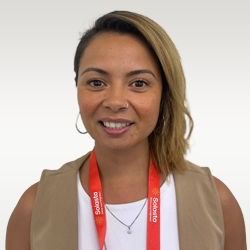 Cayetana Arranz
Counsellor
Klemzig & Edinburgh North
Cayetana Arranz
Counsellor
Klemzig & Edinburgh North

Thomas is a skilled clinician with a wealth of experience in delievering psychological therapy and counselling to individuals and groups within a diverse range of settings across government and non-government organisations.
Thomas works collectively with clients and their support networks to provide psychoeducation, foster improved wellbeing and deepen their understanding and management of mental health challenges.
Specialising in a broad range of therapeutic approaches, including cognitive behaviour therapy, acceptance and commitment therapy, brief solution-focused therapy, and dialectical behaviour therapy, Thomas tailors his style and approach to meet the unique needs of each individual.
Thomas provides services at Solasta Klemzig and also has availability to support clients at Port Adelaide.

Cayetana is a passionate and dedicated Counsellor who approaches life with curiosity, compassion, and an open mind.
With a bachelor's degree in counselling and a distinguished Dux award for academic excellence, Cayetana's expertise is grounded in a solid foundation of knowledge and skill.
Cayetana’s approach is trauma-informed, person-centred, and non-judgemental. Incorporating elements of compassion, openness & flexibility into evidence-based approaches to ensure depth and diversity in her practice.
She believes in establishing safe, open, and trusting relationships with clients that foster personal growth. Through this collaborative approach, Cayetana aims to empower individuals to navigate personal challenges, explore new perspectives and develop new ways to live healthier lives.
Committed to professional growth, Cayetana is currently pursuing post-graduate studies in counselling and sexual health.
Beyond her personal endeavors, Cayetana enjoys reading and aims to learn at least one new thing a day. Most of all, she loves having her feet firmly planted in nature.
Cayetana provides services at Solasta Klemzig and also has availability to support clients at Edinburgh North.
Our space
Get a sense of what attending an appointment at Solasta would feel like.
We offer a carefully designed, modern and inviting therapy space. Our carefully designed, spacious and light-filled rooms create a safe and comfortable environment. From the wait-room to your time in our consult rooms, we have consciously created an enriched space to ensure your experience at Solasta is a positive one.
We also have rooms designed to accommodate sensory needs, with soft lighting and thoughtfully selected furnishings to create a calming environment.
Explore the photos of our space below or check out our virtual tour.
Klemzig
Start where you are. Use what you can.
Do what you can.


